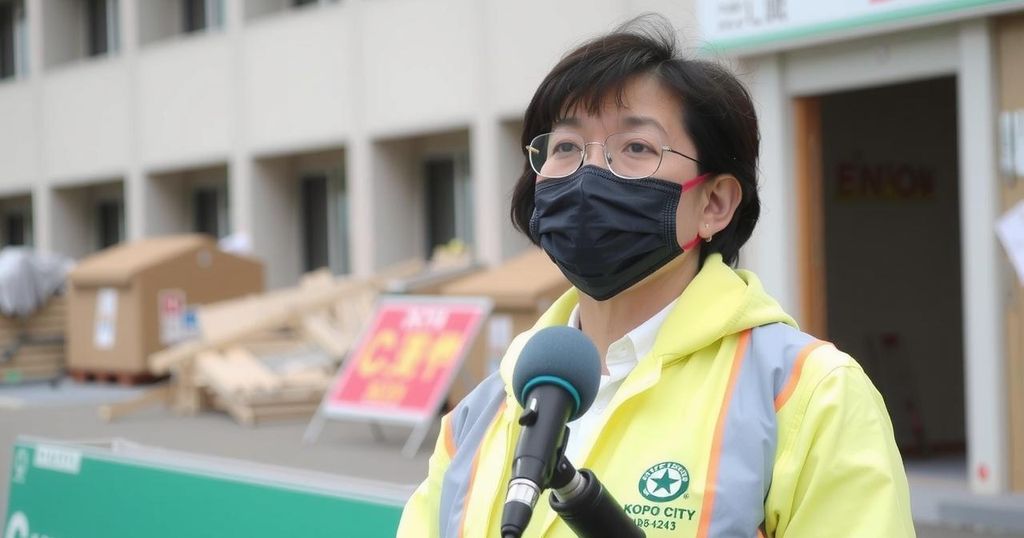Kobe Employee Enhances Disaster Preparedness After Noto Quake

Masayuki Fujisawa, a Kobe municipal employee, dedicated a year to support recovery efforts in Suzu following the Noto Peninsula Earthquake. His experiences underscored the importance of disaster preparedness, inspired by his own childhood memories of the Great Hanshin Earthquake. He aims to convey the urgency of preparation upon returning to Kobe, highlighting lessons learned in disaster response and community resilience.
In a poignant reflection of resilience and shared experience, Masayuki Fujisawa, a municipal employee from Kobe, has committed to leveraging the insights gained during his year of service in Suzu, Ishikawa Prefecture, following the Noto Peninsula Earthquake. Born shortly before the devastating Great Hanshin Earthquake in 1995, Fujisawa’s life has been deeply influenced by the narratives of disaster recovery and the importance of preparedness. His tenure in Suzu, marked by collective recovery efforts, has heightened his awareness of the necessity for effective disaster preparedness in Kobe.
Fujisawa joined the support team assigned to Suzu after witnessing the extensive damage inflicted by the earthquake on January 1, 2024. The destruction was staggering, with approximately 3,800 homes affected and visible reminders of the disaster evident across the city. During his service, he assumed significant responsibilities in public outreach, including updating city communications and engaging with local media to support victims.
Describing his experience, Fujisawa expressed, “How grateful I am to be able to live a normal life in Kobe.” This sentiment underlines the contrast between his current stability and the upheaval he encountered in Suzu. As part of his outreach, he diligently visited temporary housing sites to deliver newsletters and ensure that affected individuals remained informed about available support.
Fujisawa’s commitment to relaying the importance of disaster preparedness communicates a vital message. He recognizes that while many understand the significance of readiness, few truly grasp what it entails. His ambition is to cultivate a tangible understanding of this necessity within his community to help ensure safety during future emergencies.
Additionally, the Ishikawa prefectural government reported that a total of 566 support workers from various municipalities are aiding disaster recovery efforts across the region. This collaboration is crucial, as affected areas often face labor shortages exacerbated by the aftermath of such calamities.
As Fujisawa approaches the end of his assignment, he aims to utilize the lessons learned to enhance public communication strategies in Kobe, reinforcing the need for preparedness and strengthening community resilience against potential disasters.
The article details the experiences of Masayuki Fujisawa, a Kobe City employee, who spent a year in Suzu, Ishikawa, after the Noto Peninsula Earthquake. This earthquake, which devastated the region on January 1, 2024, prompted a nationwide response in the form of support workers dispatched to affected areas. Fujisawa’s role included public relations duties, which involved disseminating critical information to earthquake victims, highlighting his commitment to aiding recovery efforts informed by lessons from his hometown’s past experiences with disaster.
In conclusion, Masayuki Fujisawa’s journey from Kobe to Suzu encapsulates the essence of resilience and the critical need for disaster preparedness. His firsthand experiences during the Noto Peninsula Earthquake serve as a powerful reminder of the impact of such calamities and the importance of effective public communication in fostering community readiness. As he returns to his role in Kobe, his insights will undoubtedly contribute to strengthening disaster preparedness initiatives and ensuring the safety of his community.
Original Source: japannews.yomiuri.co.jp








